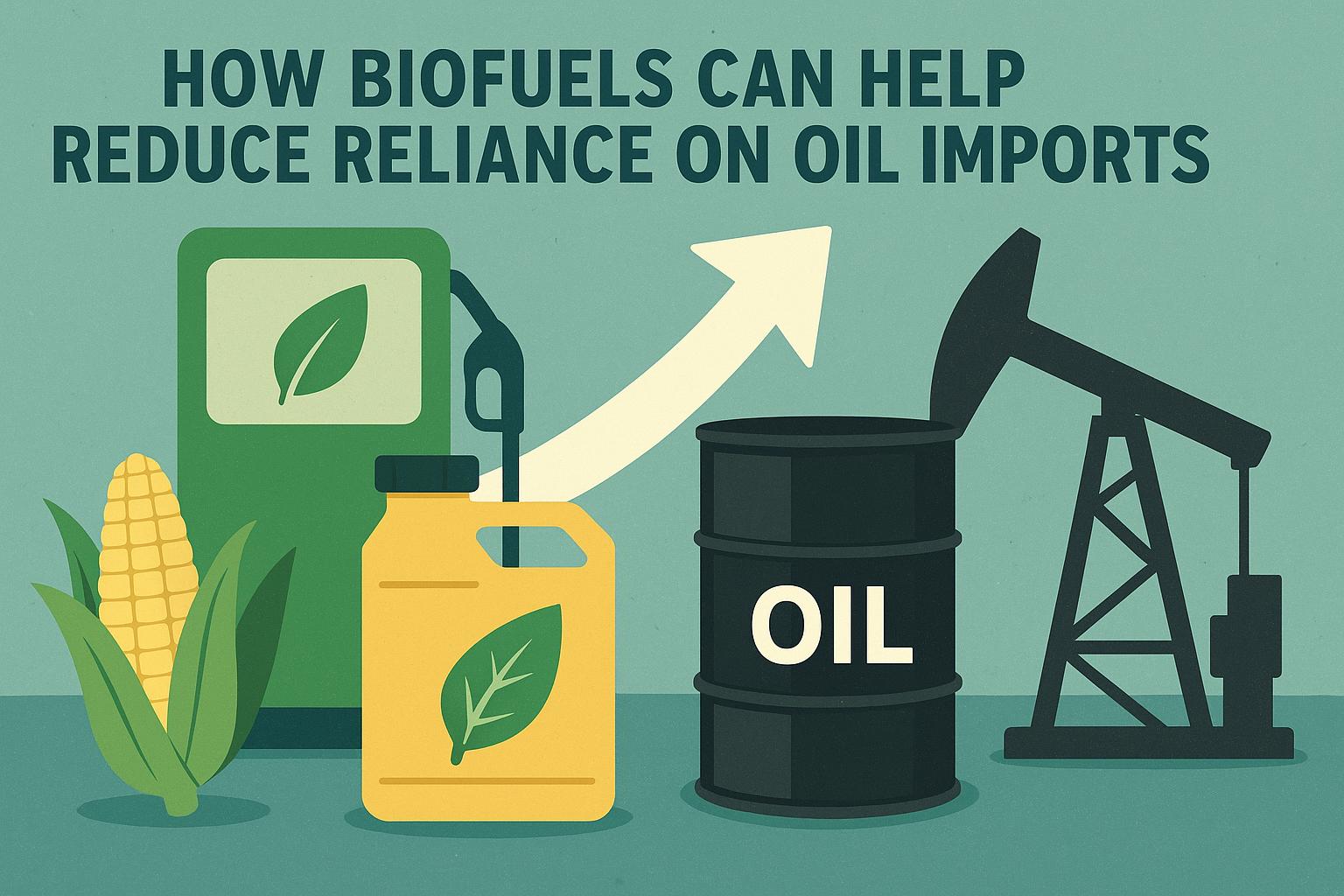The Global Energy Challenge
As the world continues to grapple with the challenges of climate change and energy security, reducing reliance on oil imports has become a priority for many nations. One viable solution gaining attention is the development of biofuels, which offer a sustainable alternative to fossil fuels.
Understanding Biofuels
Biofuels are renewable energy sources derived from biological materials, such as plants, algae, and some animal waste. They represent a shift from traditional fossil fuels, offering a cleaner and more sustainable energy source. Biofuels can be broadly categorized into two types: bioethanol and biodiesel.
Bioethanol is primarily produced from crops like corn and sugarcane. These crops undergo fermentation to produce ethanol, which can be blended with gasoline to power vehicles. In some regions, bioethanol is utilized to a significant extent, providing a substantial portion of energy needs in the transport sector. Developed as an alternative fuel for spark-ignition engines, it holds promise not only for reducing oil dependency but also for contributing to lower emission standards.
On the other hand, biodiesel is produced from vegetable oils and animal fats. This type of biofuel serves as an alternative to traditional diesel fuel. Unlike bioethanol, biodiesel is used in compression-ignition engines, typical of many commercial transport and heavy-duty vehicles. Producing biodiesel entails a process known as transesterification, where oils and fats are converted into fatty acid methyl esters (FAME). Besides reducing emissions, biodiesel is known for its biodegradability, making spills less harmful compared to conventional diesel.
The Economic Benefits of Biofuels
By reducing oil import dependency, countries can experience numerous economic advantages. The increased use of biofuels can be a significant contributor to national and regional energy security. The integration of biofuels into national energy strategies can help stabilize energy supplies, as reliance on imports from volatile regions diminishes. This independence from international oil markets can lessen vulnerability to global oil price fluctuations, thereby providing greater price stability to consumers and industries alike.
Furthermore, the biofuel industry can generate domestic employment opportunities. The entire lifecycle of biofuels— from the cultivation and harvesting of biomass feedstocks to their processing and distribution—requires a skilled workforce, leading to job creation particularly in rural areas. This job creation extends beyond agriculture to include research, technology development, and distribution networks. As these areas grow, local economies benefit, and in many cases, sustainable agricultural practices are promoted. By offering new markets for agricultural products, biofuels can enhance profitability for farmers, fostering rural development and reducing urban-rural economic divides.
Environmental Impact
In addition to economic benefits, biofuels present noteworthy environmental advantages. One of the primary environmental benefits is the potential to significantly decrease greenhouse gas emissions. The combustion of biofuels releases carbon dioxide; however, this release is balanced by the absorption of CO2 during the growth phase of the plants used to produce biofuels. This creates a more balanced carbon cycle compared to fossil fuels, which release ancient carbon stores into the atmosphere. Consequently, biofuels contribute to a reduction in the carbon footprint of energy usage.
Moreover, the production of biofuels often utilizes waste products and non-food crops, thereby reducing the adverse impact on food supply chains. Crops such as switchgrass, jatropha, and algae do not compete directly with food production and can be cultivated on marginal lands unsuitable for traditional agriculture. Advances in biofuel production technology continue to improve efficiency and environmental sustainability. Innovations like second-generation biofuels, which utilize lignocellulosic biomass, promise to enhance yields while minimizing land use and inputs, further bolstering their environmental credentials.
Policy and Innovation
The successful integration of biofuels into the energy mix requires supportive government policies and regulatory frameworks. Governments play a critical role in fostering the growth of the biofuel sector. Policies that incentivize the production and consumption of biofuels are essential to catalyze their widespread adoption. This can include subsidies, tax credits, and mandated blending requirements, which ensure biofuels become a practical and accessible option within national energy plans. Encouraging investments in biofuel technologies can also drive down costs and make them more competitive against traditional oil-based fuels.
Furthermore, ongoing research and innovation in the biofuels sector are indispensable. Continuous advances in agricultural practices, crop yields, and conversion processes are crucial for maximizing the output and cost-effectiveness of biofuels. Breakthroughs in genetic engineering, for instance, can produce crops with higher oil yields or faster growth rates, providing more resources for biofuel production. The optimization of conversion technologies, such as enzymes that more efficiently break down plant materials into fermentable sugars, can significantly impact biofuel viability. Collaborative efforts among governments, research institutions, and the private sector will continue to be vital in overcoming technical and economic barriers in the biofuel industry.
To learn more about biofuels and their role in the global energy transition, visit IEA Bioenergy.


